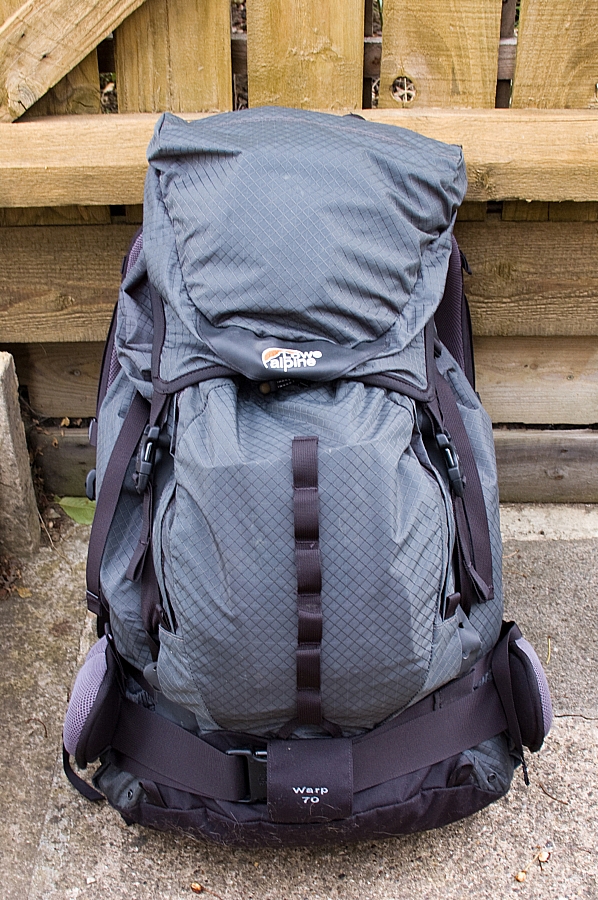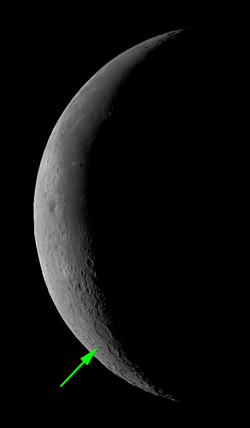After midnight you can expect a blogging outage here for a few days while I get away to the Lakes to carry this thing around for a few miles.
It'd be an easy venture if those fells weren't in the way.

See you later!
After midnight you can expect a blogging outage here for a few days while I get away to the Lakes to carry this thing around for a few miles.
It'd be an easy venture if those fells weren't in the way.

See you later!
The area around Schickard is fairly easy to see and to image when the Moon is approaching Full as it's well-lit from the West. Usually these conditions can be met during the hours of darkness. Trying to see it when it's lit from the East is a different proposition with the Moon approaching New and the sun nearby in the sky - usually it's a daytime-imaging jobbie, and that's what we have here.
The main object of interest here is Wargentin. Take just one look at it and you can see that it's not like standard lunar impact craters. No high walls surrounding a deep basin, here we have an impact crater that was filled to overflowing with basaltic lava to form a 900ft high circular plateau somewhat reminiscent of a huge coin.
Again, a red filter was needed to cut the blue glare and to reduce the effect of the bad seeing, so the resolution's not great, but I'm quite pleased with the result...
Wargentin (51 miles dia.), Schickard (137 miles dia.), Phocylides (69 miles dia.),
Nasmyth (47 miles dia.), Inghirami (55 miles dia.)
The "coin" effect is easier to make out in the above image if you cock your head over to the left. To save you from the hassle and inherent physical danger of such gymnastics, here's a rotated version:
If you fancy a peep at Wargentin, here's where to look:

We've got two varieties of spuds in bags this year. For quick crops we're growing Charlotte because they're versatile, and we're growing Anya because they're unusual, tasty, relatively expensive to buy and difficult to find (Anya is grown exclusively for Sainsbury's, according to Wikipedia). For each variety we planted bags a month apart so now we've got three bags of each on the go. It's making good use of the "dead area" in front of the observatory shed:
We cropped the first bag of Charlotte three weeks ago, they were tasty but there weren't many of them, I reckon we cropped them too early. We'll leave the next two bags a couple of weeks longer.
We've been waiting for the first bag of Anya to mature for quite some time, this variety is reluctant to flower so when the stems wilted we decided that we'd waited for long enough. This morning, we cropped them:
After a good rummage around in the home-made compost, we found these little beauties:
I'm quite chuffed with them, it was a sizeable crop with hardly any effort. We'll taste-test them this evening 
I'll put some aside for chitting so as to be able to get another two bags on the go ASAP, hopefully we'll be able to keep the supply going for the rest of the year.
After doing my bit to get the rest of the family off to work, school or whatever I went back to the obsy to pack away the kit. By then it was getting on for 10a.m. , the sun was beating down again and the sky was clear and blue. High up and almost due south I could just make out the thin crescent of the waning Moon, and I was compelled to have a pop at it with the DMK. A red filter was needed to cut the blue glare and to reduce the effect of the bad seeing and so the resolution's not great, but it was worth playing those ten minutes of extra-time...
Moon (27/06/2011 @ 10:05 approx).11 panes stitched with MaxIm DL5.
Each pane is 150/3000 stacked frames. DMK mono CCD camera on the GSRC6M.